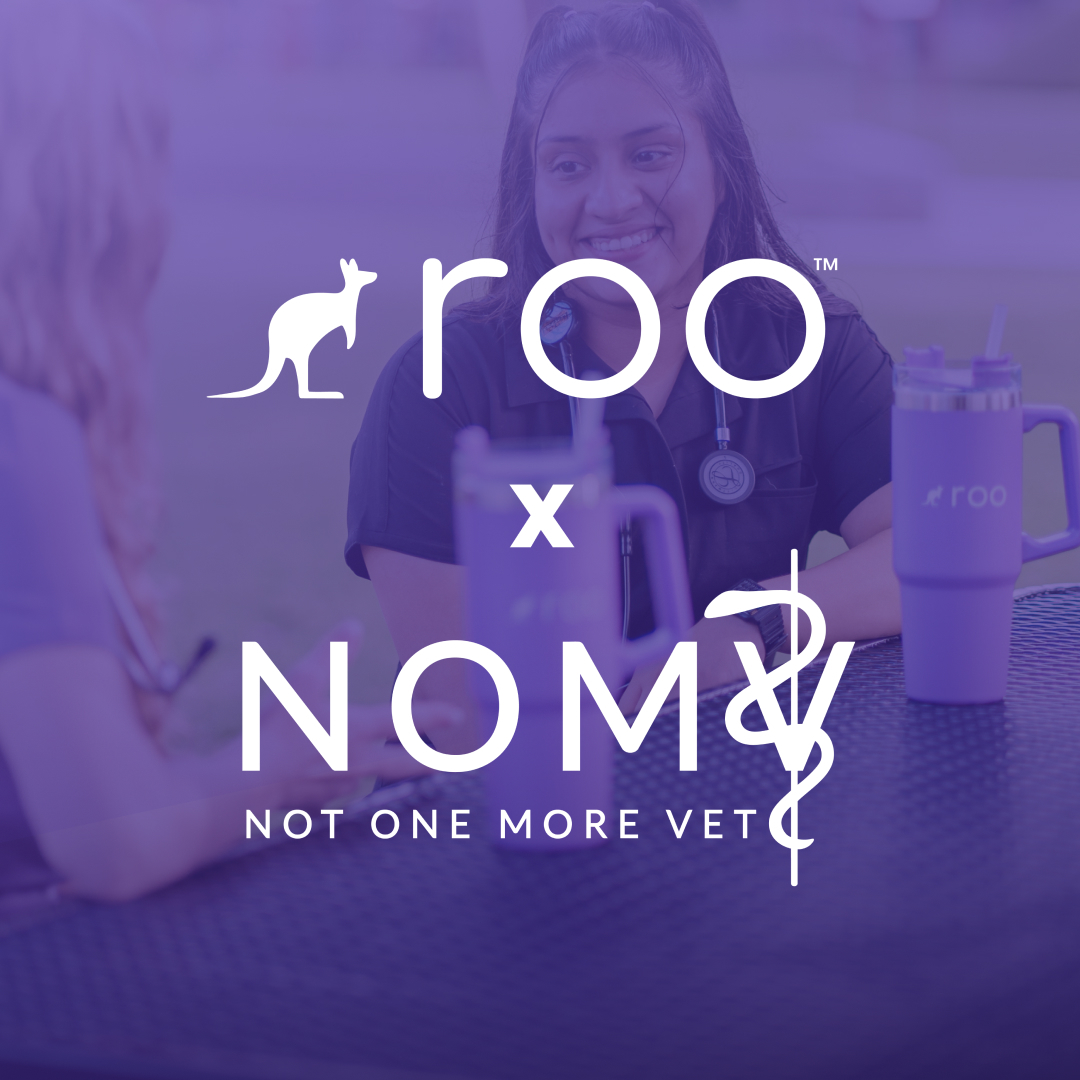Are you a Vet, Vet Tech, or practice manager trying to keep your clinic humming even when your star players need a break? Or maybe you're a Relief Vet thinking about your next gig? Either way, working with Relief Veterinarians can change how your team handles those inevitable schedule curveballs. Whether you're motivated by work-life balance, career growth, or just ready to shake things up, we'll walk you through what to expect, how to make the most of Relief Veterinarians, and how to keep everyone (pets included) happy.
Let's get right to it: Relief Veterinarians can be your superpower when it comes to clinic flexibility, fresh perspectives, and keeping burnout at bay. Get set for some candid stories, real talk about burnout prevention, advice to keep your care seamless, and, of course, a few kangaroo puns along the way.
Understanding the role of a Relief Veterinarian
Who are Relief Veterinarians?
Relief Veterinarians, or "locums" as some folks call them, are fully licensed Doctors of Veterinary Medicine (DVMs) who step in at a Hospital when the full-time Vet needs time off. Think sick days, vacations, parental leave, or those last-minute "life happens" moments. They're like the reliable friend who says yes to dog-sitting at the last second, but instead, they're caring for patients, supporting teams, and jumping into daily operations. Relief Vets pick their shifts, work at multiple Hospitals, and are true freelancers in the best way: total autonomy, no non-competes, no minimum hours. You can check details about how Relief Vets work with Roo right here.
What do Relief Veterinarians actually do?
Pretty much everything a regular Vet does. Here's a peek at what you might see:
- Examine, diagnose, and treat patients
- Perform surgeries (spays, neuters, dentals, you name it)
- Prescribe and administer medications
- Collaborate with Vet Techs and Hospital teams
- Greet pet families and keep them informed
- Tackle those surprise emergencies
- Keep detailed, up-to-date medical records
- Support continuing education and compliance
Relief Vets definitely aren't just there to "fill a spot." They bring training, experience, and fresh perspectives. Sometimes they even offer new clinical skills picked up from all the different Hospitals they've helped.
Why clinics choose Relief Veterinarians
Flexibility and continuity of care
There's one word you'll hear a lot around this topic: flexibility. Veterinary medicine is unpredictable. Vets and Vet Techs have real lives (kids, families, adventures, flu season, unexpected events). It's not just you! When life calls, Relief Vets step up so full-time staff can go on that long-overdue vacation or take sick leave without guilt. This means pet care never skips a beat, even if staffing does. You keep continuity for pet parents and avoid over-stressing your core team.
Want to see how flexibility can support team wellness? Read Roo's hospital resources for more stories about keeping practices healthy and morale high!
Specialized support and fresh eyes
Some Relief Vets come with extra-special skills. Maybe they've worked at emergency clinics, managed exotics, or have done their fair share of surgeries with every tool in the kit. Occasionally, a fresh set of eyes spots something regular staff might miss. This isn't just handy for rare cases; it's also a way to bring new protocols or ideas to the table, without a lot of internal resistance. Let's be real, sometimes teams need a little shake-up on the routine!
Boosting Veterinary collaboration
Adding a new Vet (especially one who's bounced around lots of clinics) can bring the team together in surprising ways. Relief Vets prime the clinic for open communication, efficient hand-offs, and honest feedback. True collaboration happens through:
- Daily rounds and shared patient updates
- Clear protocols for emergencies
- Team-based decision-making
- Openness to learning new approaches
It can even be easier to break out of "we've always done it this way" mode when an enthusiastic Relief Vet is in the house. See more about boosting teamwork in Roo's guide to community success stories.
What Veterinary teams should expect
Let's talk real-life transitions. When you welcome a Relief Vet, here's what helps everyone thrive:
- Give a quick tour and show them your "hidden" stuff (best place for treats, coffee machine, or the quiet office supplies drawer).
- Share your standard operating procedures, even the basics. Trust us, there are always details unique to your clinic.
- Review key patients together, especially ongoing cases or complicated treatments.
- Talk openly about how emergencies get handled. You don't want confusion at the worst possible moment!
- Make introductions so the Relief Vet isn't just "the new doc" but part of the crew.
Pro tip: Set aside a few minutes for Q&A at the start of their first shift. It goes a long way toward making everyone feel supported.
The experience for pet owners
Most pet parents bond hard with their Vet, so when they meet a Relief Vet, at first it can feel like entering a surprise plot twist. But Relief Vets are total pros at blending in, reading the room (and nervous pups), and keeping the experience smooth for families. What can pet owners expect?
- The same friendly welcome and high-quality care
- The support staff they already know and trust
- Open communication about what's happening and why
- Continuity for existing treatment plans
Sometimes, a fresh perspective from a Relief Vet can be a game-changer. They might offer solutions or see symptoms from a different angle. That new insight often means healthier pets and happier outcomes.
Vet care dynamics: changes and benefits
Shifting workflows
Relief Vets bring a "let's do this" energy, which can mean a few changes in the usual rhythm:
- Schedules might shift (hello, new lunch break time)
- Extra focus on charting and medical records, since hand-offs need to be crystal clear
- Open conversations about software tricks, supply locations, and preferences
Teams that prep for these little changes adapt quickly. If you're leading the team, encourage your staff to speak up. Questions make for smoother shifts.
Boosting morale and preventing burnout
When regulars are out, Relief Vets help the whole team rest easy (quite literally). No one's left "pulling doubles" or losing out on family time just because someone needed PTO. When staff see their leadership investing in Relief coverage, it sends a powerful message: this Hospital values work-life balance and understands what it means to care for caregivers, too.
Feeling supported? That's the magic ingredient that keeps staff engaged and prevents burnout. Plus, Relief Vets often share tricks for avoiding compassion fatigue. They've seen it all and lived to laugh about it.
Supporting Veterinary collaboration
The best clinics create an environment where every Vet, Tech, and staff member feels empowered to share ideas and contribute to decisions. When Relief Vets come in ready to collaborate, you get benefits like:
- Diverse clinical experiences added to the mix
- Faster, easier communication loops
- Team wins when tricky cases turn into learning opportunities
Curious how your Hospital can build better team communication? Peek at Roo's best practices on boosting collaboration.
How Veterinary clinics prepare for Relief Veterinarians
Preparation is the secret sauce for successful Relief shifts. And, let's be honest, for life in general.
Want to set your Relief Vet up for success?
- Send a quick "what to expect" email before their first day.
- Create a cheat sheet with protocols, phone extensions, and local go-to's (nearest coffee, pharmacy, emergency contacts).
- Point out where your Meds log, appointment book, or digital chart system lives.
- Share hospital-specific instructions for things like anesthesia preferences, controlled drug policies, or client communication.
- Ask your Relief Vet if they'd like to join your internal group chat or Roo Message Center thread for real-time questions.
Those little prep steps save time and prevent "deer-in-the-headlights" moments for everyone.
Hospitals searching for help preparing for Relief coverage can check out these resources:
Working with Relief Veterinarians: tips for a seamless experience
Whether you're a Relief Vet, a full-time team member, or a Hospital leader, a little planning goes a long way. Here's how to keep the shift stress-free:
For Veterinary teams
- Give your Relief Vet everything they need to hit the ground hopping (see what we did there?).
- Be clear about hand-offs. Share those hard-to-find details about ongoing treatments or chronic cases.
- Leave out any "well, they just know" gotchas. Nobody's a mind reader.
- Offer a warm welcome. Snacks help!
For Relief Veterinarians
- Ask for cheat sheets and protocols early if possible.
- Communicate openly. If you're using a new system or suggesting a change, say it out loud.
- Keep notes legible and up to date for smooth transitions.
- Know your credentials: a current DVM license, and sometimes DEA registration or other controlled substance paperwork, may be needed depending on shift location.
- Search for shifts that fit your skills on Roo, and don't forget to sign up and browse shifts here.
For pet owners
- If you find out you'll be seeing a Relief Vet, ask the client care team for an intro.
- Write down your questions. Relief Vets love being able to jump straight into what matters to you.
- Rest easy knowing Relief Vets are qualified, friendly, and ready to help your pet.
Veterinary collaboration drives better outcomes
Want better patient care, higher staff morale, and thriving practices? Build collaboration into your workflow. Studies have shown that by working together, Veterinary teams see improved patient outcomes and more consistent continuity of care.
That means:
- Shared medical records and clear communication
- Collective brainstorming for tough cases
- Professional development together (hello, Roo Free CE Events! Explore Free CE Events)
Curious about career paths that let you flex those collaborative muscles? Check out what's possible on Roo's Careers page.
Final thoughts from Roo
Relief Veterinarians are the behind-the-scenes heroes that keep Vet teams rested and Hospitals thriving. They're not just stand-ins. They bring expertise, adaptability, and sometimes a new joke or two to lighten stressful days. Working with Relief Vets is all about teamwork and trust. Prepare well, communicate openly, and you'll help everyone (team, pets, and clients) feel supported.
For Vet and Tech teams looking to stay curious, connected, and always growing, Roo is here to help. Find CE opportunities and career support at Explore Free CE Events, see the latest roles at Roo's Careers page, and follow Roo on LinkedIn for more stories from Vets across the country.
Frequently asked questions about Relief Veterinarians
1. What does "Relief Veterinarian" mean?
Answer : A Relief Veterinarian is a fully credentialed DVM who fills in temporarily at Clinics when regular full-time Vets are away, ensuring seamless pet care and support for Hospital teams.
2. How much do Relief Veterinarians charge per hour?
Answer : Rates can vary, but the average national hourly rate for Relief Vets in the U.S. is around $80 per hour in 2025. Some rates may go higher based on region and specialty.
3. What qualifications do I need to be a Relief Veterinarian?
Answer : The qualifications you need to be a Relief Veterinarian
- An active DVM license
- DEA registration if handling controlled substances
- Additional certifications for certain specialties or local regulations
- Experience in clinical practice makes the transition easier
4. What should a Hospital do to make a Relief Vet's first shift easy?
Answer : These are the things Hospital do to make a Relief Vet's first shift easy
- Share hospital systems/protocols, hand off ongoing cases, introduce staff, and set up quick check-ins during the first shift.
- Connect your Relief Vet with helpful hospital tutorials and best practices at Hospital tutorials: how to Roo.
5. Can Relief Veterinarians handle all standard Vet duties?
Answer : Yes! Relief Vets examine, diagnose, treat, prescribe, perform surgery, and handle emergencies, just like permanent practice staff.

.png)




.png)
.png)




